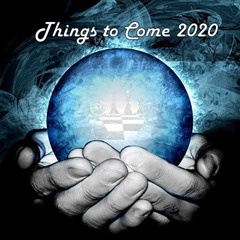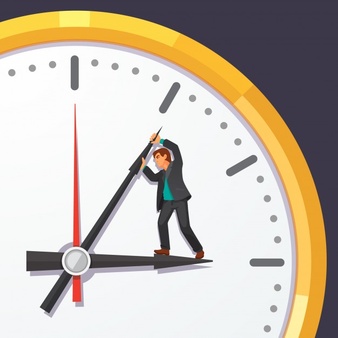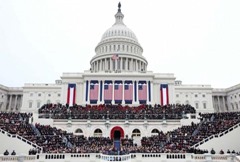 This New Years Day not only heralds the start of another year, but the start of a new decade as well. To myself the start on the new decade engenders a strange feeling, that the 20th century, momentous as it was, no longer seems as it was just around the corner, but has now firmly become part of history.
This New Years Day not only heralds the start of another year, but the start of a new decade as well. To myself the start on the new decade engenders a strange feeling, that the 20th century, momentous as it was, no longer seems as it was just around the corner, but has now firmly become part of history.
Predicting developments in the forthcoming year is not like trying to gaze into a crystal ball for answers as my article picture would suggest. It is more a case of keeping in touch with events, particularly the more recent ones, and then using common-sense nous, tempered by sensing the public mood on given issues to forecast how things are likely to pan-out.
There can be no doubt recent political events culminating in a General Election will continue to have a major impact in the forthcoming year.
It’s now three and a half years since the UK held the referendum, popularly known as the Brexit Referendum, to decide whether it should leave the EU or not. Our exit date supposedly being by the end of March 2019. During that time, the public mood became increasing frustrated by the political antics of MP’s opposed to the referendum result, irrespective of how their constituencies had voted, used their dominance with a minority government, to try and frustrate, delay, or even abolish Brexit altogether.
Leadership, Anti-Semitism and proposed fiscal issues also were causing Labour a lot of concern. It was only when a General Election was finally called with many anti-Brexit MP’s firmly convinced the public was completely behind them, that they finally awakened the real truth of public opinion, as the electorate swept them aside. In the end voters elected with an overwhelming majority, the only major political party to have put honouring the Brexit Referendum at the centre stage of their manifesto. Now it looks like the Conservative Party are firmly in control for the next five years, although it may be a little shorter than that depending on circumstances at the time, as most political parties are loathe to hold elections in the winter
Now the losing political parties will carry-out a lot of soul-searching as to why they lost, and some electing new leaders. But irrelevant of how many enquires they hold, the real question is whether they can accept what to many is the blindingly obvious reasons for their defeat, or for reasons of political expediency become self-deniers?
In Labour’s case, I think there is a possibility of strong differences of opinion over future policy issues, which could lead to something of a internal struggle. There is a strong feeling running through the country that no political party really supports working people any longer, and the traditional support Labour relied on from working people is no longer there. Given this left in the wilderness feeling and general distrust of all political parties, many voters now vote tacitly in each election be it local or national, dependent on the issues at the time. One aspect many working people are also suspicious of is the rise of the professional politician. Labour is now at something of a crossroad and depending on the path they take, they can either eventually start travelling on the long road to recovery by rebuilding working peoples trust, or begin the long decline into insignificance. If they choose the latter, it is inevitable that another workers party will eventually emerge to take their place. Even the most wonderful of election manifestos is worthless if the party proposing it does not take power. The forthcoming year is likely to see the future fate of the Labour Party decided for a long time to come.
The SNP did extremely well in Scotland and once more cries for Scottish Independence have started to ring loud. However there are many Scots who will say although they voted for the SNP, that does not mean they would vote for Independence. Recent polls indicate only about 45% of the Scottish electorate support the idea. That is about the same amount as the Scottish Independence Referendum held five years ago and which was supposed to be a once in a lifetime vote. The new Conservative Government have already indicated the last referendum on independence should be honoured, which is the polite way of saying no. If as looks likely the UK does leave the EU at the end of January, and with the EU having previously indicated they would only accept Scotland as part of the UK, apart from the noisy sabre-rattling sounds of displeasure, it is not clear to me what real cards the SNP have left to play.
As for myself, I am English by birth but I have always considered myself to be British. Historically, the United Kingdom may well have been at one time three separate nations plus Northern Ireland, but to most people including myself, all of it has been my country throughout my lifetime, and I have never considered the Untied Kingdom as anything other than one country. There are many people, possibly the majority throughout the whole of the UK who feel the same. I am sure that any politician who tries destroying our country, the United Kingdom, for short term political gain, is likely to get short shrift from the public as a whole.
Even with the UK. leaving the EU, until the end of 2020 there should be little difference to individuals travel and holiday arrangements in the within EU. What happens beyond that will largely depend on how negotiations on trade and conditions with the EU develop.
One thing that clearly has to be resolved is the question of the Irish border. In the past year with a minority government, both the EU and the Irish Republic were able to take a tough stance on the issue, but now the political football field has radically changed, one would hope they will now adopt a more reasonable stance, particularly as a hard border will be very damaging to Ireland. In the world of politics, there is no such thing as the impossible. All is possible providing the will, and possibly the financial necessity is there.
The 1st February will be a historic day in itself as it will be the first time in 47 years since 1973, that the UK once again becomes a truly sovereign nation, able to determine its own way in the world. That may be something of a strange feeling to those born after that date, but those old enough to have experienced it before, know how it feels to be able to stand on your own two feet. In some ways it is like the time in life, when a young person is considered to be legally mature enough to make their own decisions in life, independent of their parents.
This year will also see major decisions made on the High-Speed rail link to the north of England. During the past year there have been suggestions questioning it’s economic viability. I am certainly no economist although I have a gut feeling that a lot of money must have be unnecessarily wasted and escalating costs need to be firmly brought under control. It does seem to me though, a question of how can one expect the Northern Powerhouse to properly flourish, if it is not adequately connected by rail to the rest of the country? There are some projects that need to placed well beyond the dampening influence of bean-counters, and this is one of them.
Filed under: January 2020, The Political Page | Tagged: Brexit, general election, High Speed Rail, Irish Border, Labour Party, new decade, Northern Powerhouse | Leave a comment »











